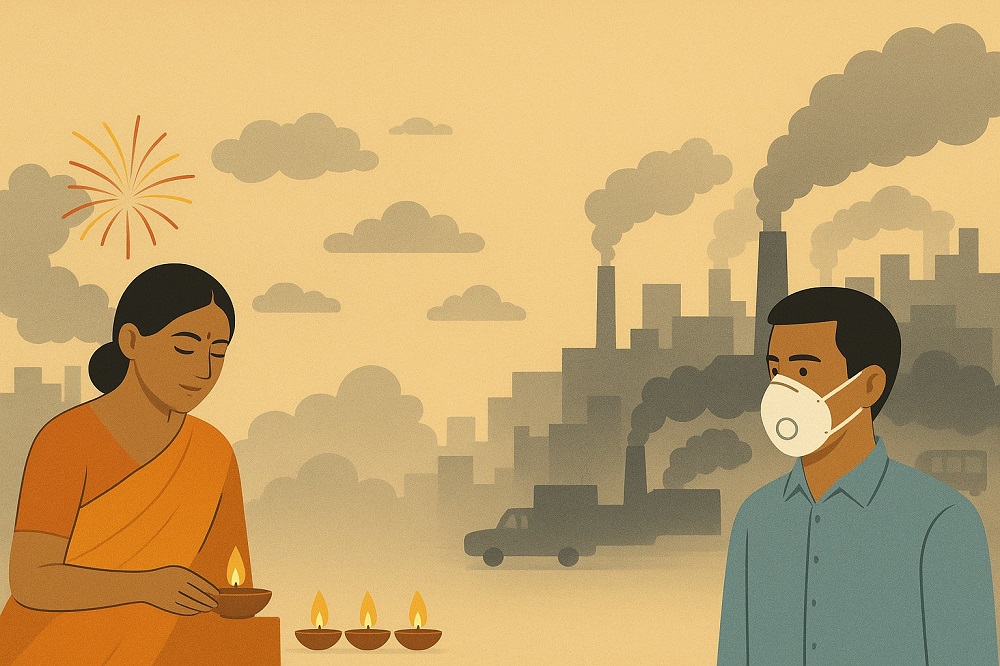“It’s well known that Diwali is associated with a temporary spike in air and noise pollution, which can acutely worsen pre-existing health conditions—especially respiratory illnesses, eye irritation, or upper airway symptoms. However, it’s important to understand that such short-term exposure typically does not lead to long-term lung damage in healthy individuals.
What often gets overlooked is that the chronic, year-round exposure to pollution in urban environments—due to traffic, construction, industrial activity, and poor waste management—is far more harmful in the long run than the few days of Diwali-related pollution. While we should acknowledge and be sensitive to the acute rise in pollution during festivals, our discussions and preventive strategies must extend beyond just the festive period.
For individuals with asthma, COPD, heart disease, or in vulnerable groups like children and the elderly, this season can still pose a health challenge. Preventive care becomes essential: stay regular with medications, consult your doctor even when well, get recommended vaccines (like flu), stay hydrated, avoid excess sweets and fried foods, and maintain indoor air quality—especially if ventilation is poor. Avoid excessive incense use indoors and consider air purifiers in rooms of infants or elderly. If stepping out, N99 masks may help reduce exposure.
At the same time, let’s celebrate Diwali mindfully. Choosing green crackers, limiting firework time and volume, and avoiding high-decibel crackers not only shows responsibility but also respect for those around us. This way, we honour the spirit of the festival—light over darkness—while being conscious citizens of our environment.”
— *Vikas Mittal *
Consultant Pulmonologist / Wellness Home




